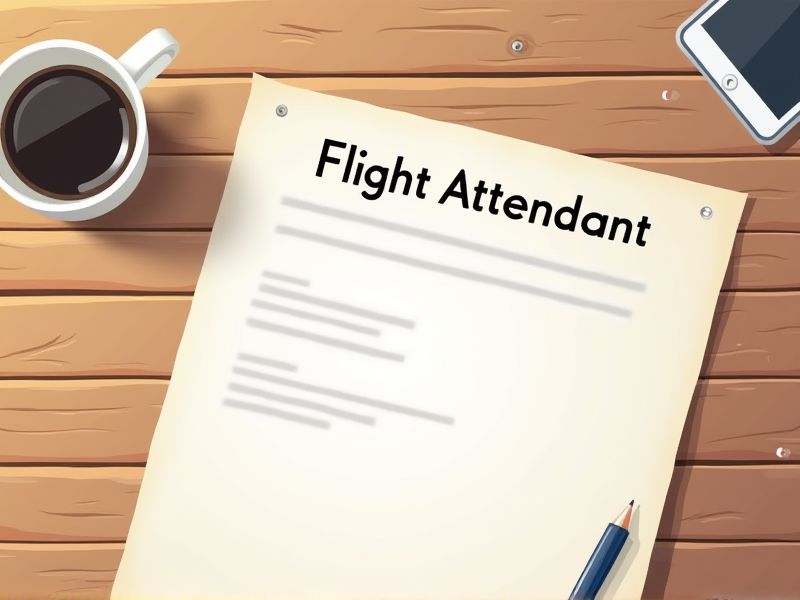
Flight attendants encounter diverse in-flight scenarios requiring specialized skills and readiness, emphasizing the necessity for certain certifications. Airline safety protocols and industry regulations ensure passenger safety, thus necessitating trained personnel with specific certifications. These certifications cover areas such as emergency management, first aid, and passenger service. Below are key certifications that aspiring flight attendants may need to pursue.
Basic Flight Attendant Training Certification
The Basic Flight Attendant Training Certification is necessary for flight attendants to ensure safety protocols are uniformly understood and applied during flights, which reduces the risk of incidents. This certification equips flight attendants with essential skills in emergency procedures, such as evacuations, first aid, and conflict management, ensuring they can assist passengers effectively. Airlines require this certification to comply with aviation industry regulations and standards, maintaining consistency across carriers. Flight attendants with this certification demonstrate professionalism and preparedness, enhancing passenger trust and the airline's reputation.
Emergency Evacuation Procedures Certification
Flight attendants need Emergency Evacuation Procedures Certification to effectively manage onboard crises and ensure the safety of passengers during emergencies. Proper training equips them with skills to conduct orderly evacuations, minimizing potential panic and injuries. Regulatory authorities mandate this certification to align with international aviation safety standards. Proficient handling of emergency scenarios by certified attendants contributes to increased passenger confidence and trust in airline safety.
First Aid and CPR Certification
Flight attendants encounter medical emergencies in-flight where immediate first aid and CPR can save lives. Certification ensures that they have the skills to manage sudden cardiac arrests and other acute medical situations during flights. Limited medical resources on board a plane require crew to be the first responders until the plane lands or professional medical help is available. Airlines prioritize passenger safety, hence trained flight attendants enhance overall cabin safety and reassure travelers.
Firefighting and Fire Suppression Certification
Firefighting and Fire Suppression Certification equips flight attendants with essential skills to manage onboard fires, reducing risks to passenger safety. The confined environment and limited resources on an aircraft require specific techniques to effectively contain and extinguish fires. Ensuring all cabin crew have standardized training enhances coordination and increases the likelihood of successfully managing fire emergencies. Certification reflects adherence to aviation safety regulations, fostering trust and confidence among passengers.
Aviation Security Awareness Certification
Flight attendants play a crucial role in ensuring passenger safety and can effectively recognize and report potential threats when equipped with Aviation Security Awareness Certification. Training enhances their ability to maintain a secure environment by understanding security protocols and emergency procedures, directly reinforcing airline safety measures. Certifying flight attendants in security awareness helps prevent and respond to aviation security incidents, reducing risks of terrorism and other threats. Informed and vigilant crew members contribute to overall safety, reassuring passengers and supporting compliance with international aviation security standards.
Cabin Safety and Emergency Equipment Certification
Cabin Safety and Emergency Equipment Certification for flight attendants arises from the necessity to ensure passenger safety during flight. Proper certification equips attendants with the knowledge to handle emergencies such as turbulence, fire, or evacuation effectively. Detailed training enables flight attendants to operate emergency equipment like life vests and oxygen masks with precision, reducing potential harm. Regulatory compliance demands certification to standardize safety protocols globally, minimizing risks inherent in air travel.
Conflict Resolution and Communication Skills Certification
Effective conflict resolution and communication skills are essential for flight attendants due to their role in managing in-flight disputes, which enhances passenger safety and satisfaction. Continuous training and certification validate these skills, providing flight attendants with updated strategies to handle diverse passenger interactions. Airlines benefit from fewer escalated incidents when attendants use certified skills to defuse tension. Passenger experience improves, influencing customer loyalty and airline reputation positively.
Customer Service Excellence Certification
Customer Service Excellence Certification equips flight attendants with refined communication skills, directly enhancing passenger satisfaction during flights. When flight attendants possess this certification, it instills trust and reassurance in passengers, contributing to a more pleasant travel experience. Certification provides standardized training, which promotes consistency in service quality across different flights and airlines. Flight attendants with this certification are better prepared to handle diverse passenger needs and potential conflicts, leading to improved flight safety and operational efficiency.
Cultural Diversity and Cross-Cultural Communication Certification
Flight attendants encounter passengers from diverse cultural backgrounds, necessitating an understanding of cultural differences to provide respectful and effective service. Misunderstandings and conflicts can be minimized when attendants are trained in cross-cultural communication, enhancing overall flight experience. Cultural diversity certification equips flight attendants with skills to navigate and interpret non-verbal cues accurately, reducing potential miscommunication. In a globalized travel industry, such qualifications also boost airlines' reputations for inclusivity and sensitivity to passengers' cultural needs.
Crisis Management and Stress Management Certification
Flight attendants face high-stress environments that can lead to burnout, so certifications in stress management help them maintain personal well-being. Crisis management skills ensure they can effectively handle emergencies, benefiting passenger safety. The aviation industry demands quick decision-making, and certified training enhances attendants' ability to remain composed. Airlines prioritize these certifications to improve overall operational safety and customer satisfaction.
Summary
With flight attendant certification, you can enhance your skill set, enabling you to manage in-flight emergencies more effectively. Passengers on your flights might feel a heightened sense of safety and security. Airlines looking for qualified cabin crew could view you as a preferred candidate, potentially increasing your job prospects. Certification may also lead to opportunities for career advancement within the aviation industry.
